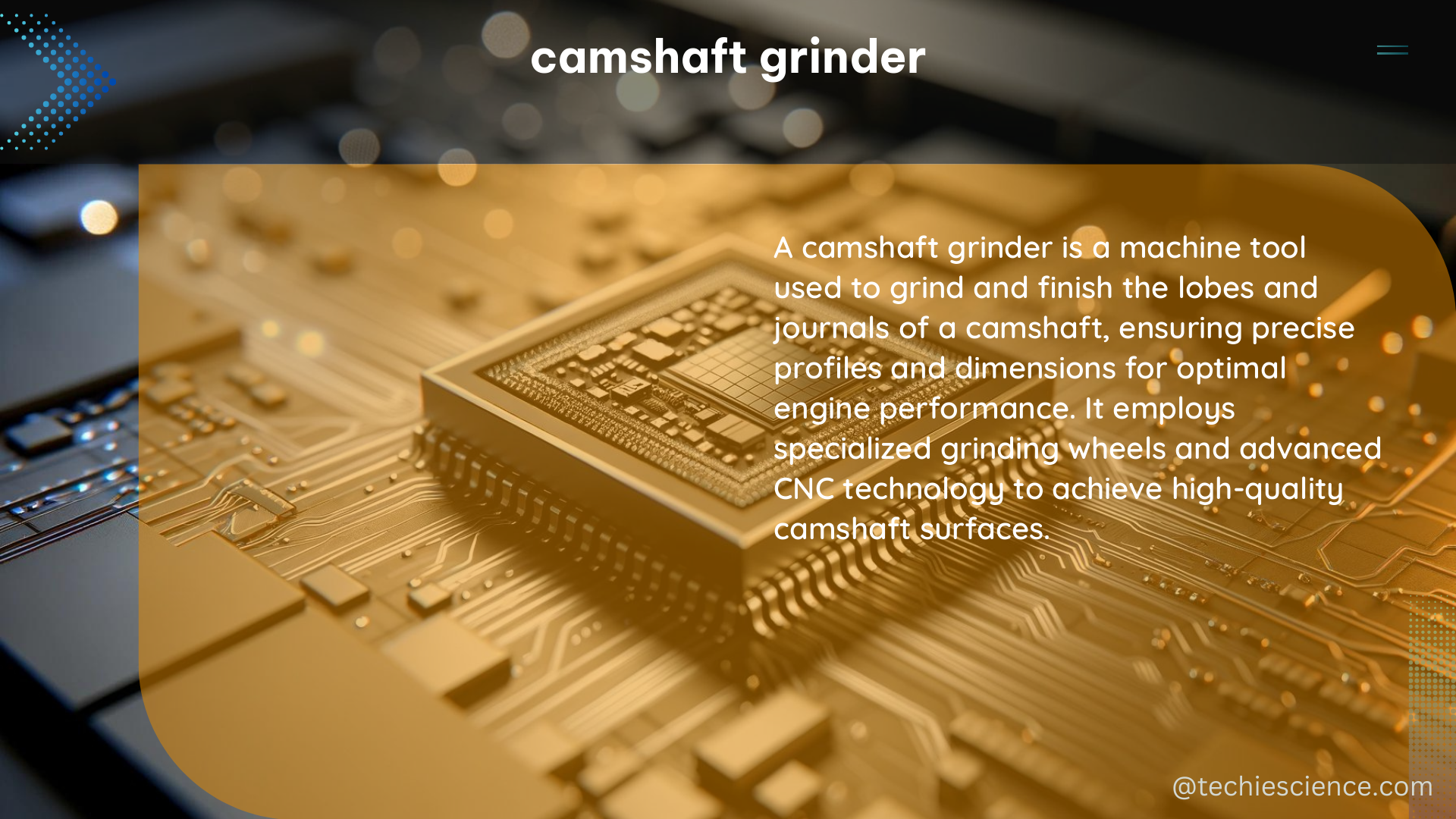Camshaft grinding is a highly specialized process that requires precise control over the grinding wheel and the workpiece to produce high-quality camshafts. This process typically involves the use of CNC grinding machines and CBN (Cubic Boron Nitride) wheels, which are second in hardness only to diamond. One of the primary challenges in camshaft grinding is preventing grinding burn, which can occur when the workpiece material properties are altered due to high grinding temperatures, leading to tempering, residual tensile stresses, or even phase changes in the metallurgy, which can ultimately cause cracking.
Preventing Grinding Burn: Optimizing Grinding Parameters
To mitigate the risk of grinding burn, it is crucial to carefully control the grinding parameters. One effective approach is to adjust the number of workpiece increments based on the predicted workpiece surface temperature. Studies have shown that a temperature threshold of 441°C (826°F) is optimal for certain applications, resulting in a 20% reduction in cycle time compared to constant Material Removal Rate (MRR) and a 40% reduction compared to constant power.
Nondestructive Testing for Quality Assurance

Measuring grinding burn can be a challenging task, as traditional methods such as cutting, polishing, and etching the workpiece are time-consuming and destructive. However, advancements in nondestructive testing using Barkhausen Noise have enabled the detection of softening, residual tensile stresses, and phase changes in the material. This allows for 100% quality assurance in the production process, ensuring that every camshaft meets the required specifications.
Technical Specifications of a Camshaft Grinder
A typical camshaft grinder may have the following technical specifications:
| Specification | Range |
|---|---|
| Grinding Wheel Size | 200mm diameter x 32mm width |
| Grinding Wheel Speed | 30-50m/s |
| Workpiece Speed | 10-30m/s |
| Maximum Workpiece Diameter | 150mm |
| Maximum Workpiece Length | 800mm |
| Grinding Wheel Feed Rate | 0.05-0.5mm/rev |
| Grinding Wheel Dressing Frequency | Every 5-10 workpieces |
| Machine Weight | 5000-10000kg |
| Power Consumption | 10-20kW |
Advances in Camshaft Grinding Technology
The camshaft grinding process has undergone significant advancements in recent years, driven by the need for higher precision, tighter tolerances, and improved surface finishes. The introduction of CNC grinding machines and CBN wheels has revolutionized the industry, allowing for greater control and consistency in the grinding process.
One notable advancement is the use of predictive models to optimize the grinding parameters based on the workpiece material properties and desired output characteristics. By leveraging data-driven algorithms and real-time monitoring, manufacturers can fine-tune the grinding process to minimize the risk of grinding burn and maximize productivity.
Additionally, the development of nondestructive testing methods, such as Barkhausen Noise analysis, has enabled 100% quality assurance without the need for destructive testing. This has significantly improved the efficiency and reliability of the camshaft grinding process, ensuring that every part meets the stringent requirements of the automotive industry.
Conclusion
Camshaft grinding is a complex and highly specialized process that requires a deep understanding of the underlying principles and the ability to precisely control the grinding parameters. By mastering the art of camshaft grinding, manufacturers can produce high-quality camshafts with tight tolerances and exceptional surface finishes, meeting the ever-increasing demands of the automotive industry.
References:
– Camshaft Mysteries Explained
– Camshaft Grinder Forum Discussion
– Camshaft Grinding Patent
– Camshaft Grinding: Advanced Technological Innovation Through Collaboration
– Camshaft Grinding Patent

The lambdageeks.com Core SME Team is a group of experienced subject matter experts from diverse scientific and technical fields including Physics, Chemistry, Technology,Electronics & Electrical Engineering, Automotive, Mechanical Engineering. Our team collaborates to create high-quality, well-researched articles on a wide range of science and technology topics for the lambdageeks.com website.
All Our Senior SME are having more than 7 Years of experience in the respective fields . They are either Working Industry Professionals or assocaited With different Universities. Refer Our Authors Page to get to know About our Core SMEs.